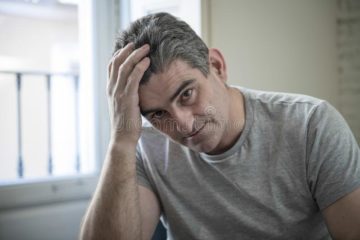White Knuckling: A Dangerous Lifestyle

by George Algar-Nicholas
Stomach aches, muscle tension, chest pain and sleep problems. No this is not the next virus eyeing up the last four months of our twenty twenty calendars with hungry eyes. These symptoms are actually a sign of stress, and the effect it can have on our body.
Stress is a universal problem everyone in the world faces, whether it is celebrities stressing about their old racist tweets or regular, normal people stress like having an approaching deadline, it affects us all in a similar way. We all know the feeling. Considering that stress is so pertinent in every single human life, it seems odd that it has been shoved to the side, as the proverbial red headed stepchild of societal issues, eating the leftovers of its more popular brothers and sisters. After analysing the way we view stress and consequently relaxation, it’s obvious that there is a huge amount of misunderstanding around the concept of stress and how it can work with us.
The myths around stress begin at the eleven plus stage of exams. This is a stage in the UK where children moving from primary school to secondary school take a test to get into more exclusive or academically prestigious schools. 78% of primary school leaders surveyed believed that the increasing rate of anxiety, panic attacks and stress in young people is due to specifically the fear of failing exams. Despite this, little has been done by exam boards or the government to change the system. What has been created, however, are a plethora of homebrew techniques available on the internet on how to suppress a child’s stress in order for them to do better in the exams.
This is avoiding the issue at hand. Much like pain, stress is a useful indication from one’s body that the situation that body is in is unpleasant. It is useful to be able to control stress for short periods of time, however this idea of suppressing stress for months in order to deliver is ridiculous. Instead, the problem which is causing the children the stress should be addressed; the exams. (The irony of writing this article, hours before the deadline is not lost on me.)
The fact that we are introduced to the idea of suppressing stress from such an early age has clearly impacted our mental and physical health severely. 67% of adults in the UK suffer from disrupted sleep, a known symptom of stress. So the stress we take in as children clearly affects us not only in the short term but in the long term.
As we grow, our relationship with stress changes, it ages less like a fine wine and more like a pint of milk. Throughout our late teenage years and early twenties, we are bombarded with the idea of ‘the grind’. The grind can be categorised as a way of life in which one works constantly in order to make money or find security in life that they can enjoy later. Although this is the most modern version of this idea, the system of working incredibly hard in one’s twenties to rest easy in one’s forties has been prevalent in our society for a very long time. An example of this is the “work hard, play hard” slogan which has seen use in advertising as early as the nineteenth century. The problem with this idea of overworking and then relaxing or ‘playing hard’ is that it fundamentally misunderstands the way in which stress, and consequently relaxation work.
Humans are creatures of habit and we get good at what we practice, whether that is watching television all day, playing the piano or enduring eighty hour work weeks, our body and mind become acclimated to the conditions. Because of this if we neglect relaxation and focus purely on work, we will become acclimatized to the high pressure environment and when we do get a chance to relax, not only will we not want to but we won’t know how to. This is the reason why people who leave high intensity jobs often find themselves suffering from heart attacks as well as symptoms of anxiety such as insomnia. It is because the change that our bodies and minds go through is absolute and immediate. Randall Paulsen, a psychiatrist at Harvard-affiliated Brigham and Women’s Hospital explains that “During that phase of going from a lot of structure to almost no structure, men can exhibit the same signs as someone who is overworked.”
This shows that humans are not built to do purely one thing and then purely another thing. To live a happy life there must be a balance between work and relaxation, both at a level which feel comfortable.
The concept of finding time to relax and working it into day to day life as an essential rather than an addition has been a part of many cultures. The ancient Greeks for example were an essential and revolutionary society. They invented modern philosophy, geometry and, most importantly, cheesecake. However, despite their rational minds, they always found time to relax, specifically in the form of dance. At the festival of Dionysus, every march, every member of Greek society was expected to dance without limit or judgement. What the ancient Greeks had grasped that we seem to have forgotten is the importance of regular relaxation and letting go.
For adults today, relaxation is seen as an optional extra, restricted to overpriced and pretentious meditation classes or two weeks of holiday in some remote island every couple of years. This idea that relaxation is for secure, usually financially independent people only, or for it to be seen as ‘stress points’ that can be cashed in now and again is very harmful. Everybody feels stress, in the same way that everyone feels pain or joy, so to attempt to suppress, control and privatise stress and relaxation is flawed as a concept and dangerous to the individuals who subscribe to that way of life.
The overall takeaway of this article is that ‘white knuckling’ one’s way through life is much like trying to remove asbestos from a building by eating it all. Unpleasant, ineffective and probably not very good for you.
My Name is George,
I am a young writer.
I love film, fitness, sports and video games.
I write scrips and articles for a commission.
Let me know if I can write anything for you on this email address: George.a.nicholas5@gmail.comArticle source: http://articlebiz.com







No Comment